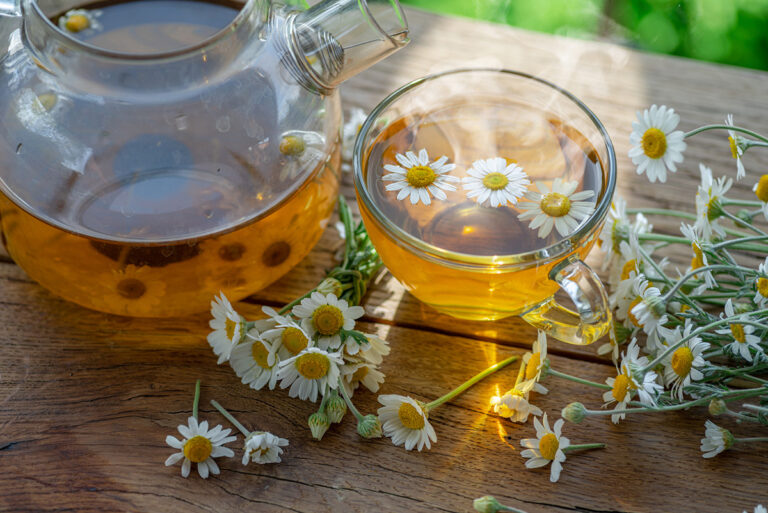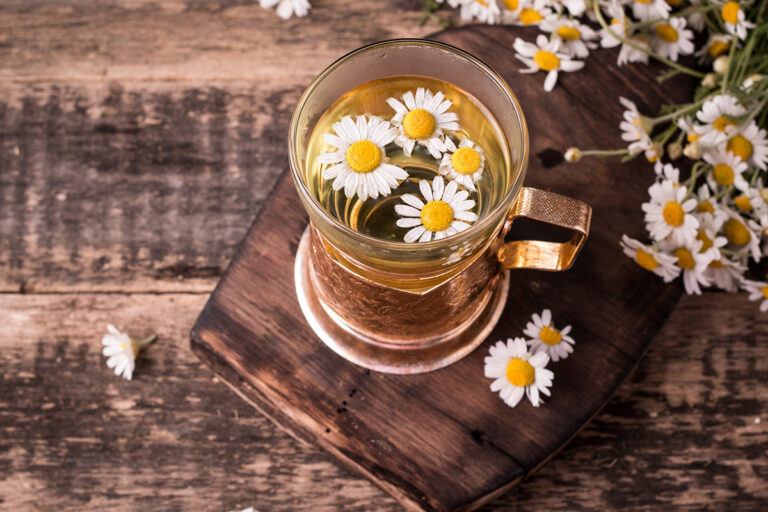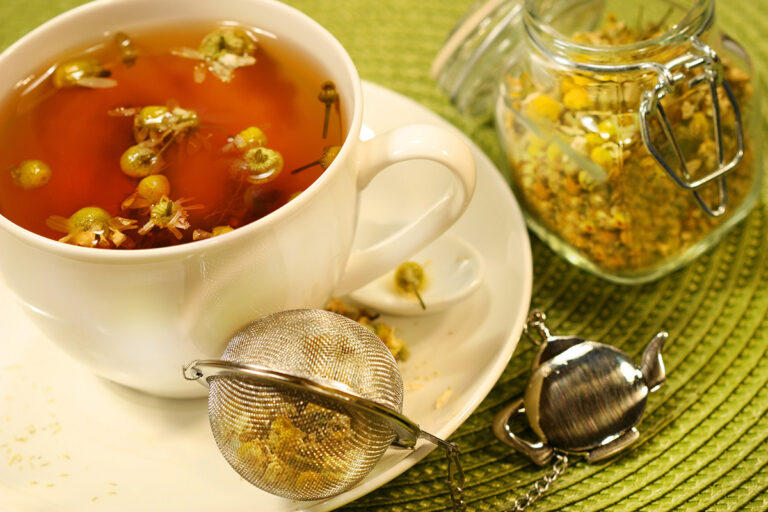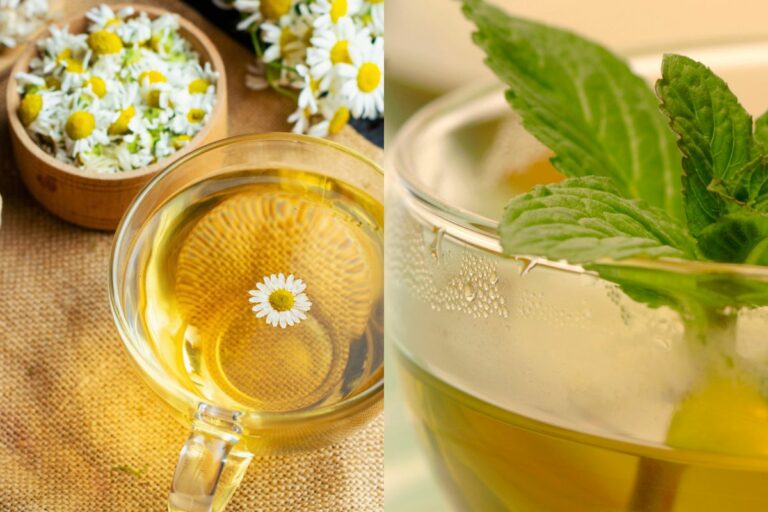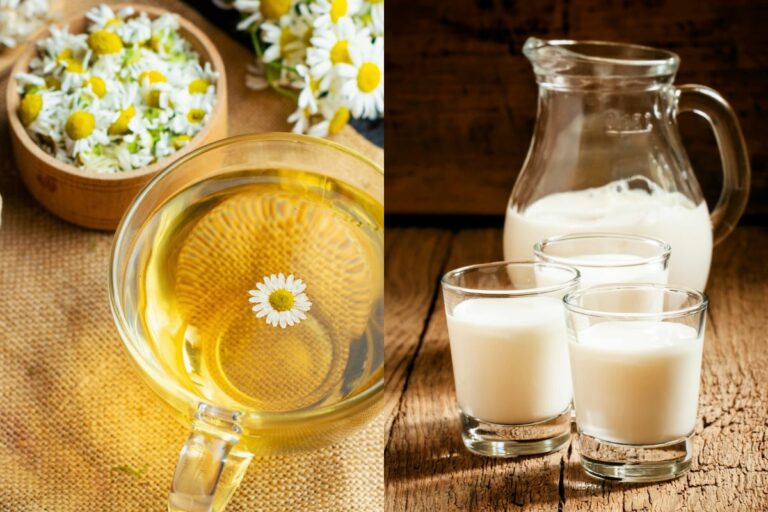How Much Caffeine Is in Chamomile Tea?
Are you curious about whether chamomile tea contains caffeine? If so, you’re not alone. With its claimed health benefits, this herbal drink has gained popularity, and it’s important to know if it has caffeine.
So, does chamomile tea contain any caffeine?
The answer is no. Chamomile tea does not contain any caffeine. Therefore, it can provide a soothing effect without the energy spike associated with other beverages containing caffeine.
That said, plants absorb elements and nutrients from the soil, including trace elements. If a chamomile plant comes into contact with caffeine-containing plants or nutrients in the soil, there is a remote possibility that it may absorb some caffeine traces that can be passed on to the drink. However, tea processing is likely to eliminate any trace elements absorbed.

Is There an Herbal Tea Containing Caffeine?
Teas like black, green, white, and oolong naturally contain high caffeine as they all come from the same Camellia sinensis plant. These teas are also called true teas.
Unlike them, chamomile is an herbal tea, or a tisane. Herbal teas, in their majority, don’t contain caffeine. One of the few exceptions is yerba mate.
Yerba mate, indigenous to South America, is an herbal tea that originates from the leaves of a tree in the holly family. Indigenous cultures have been using it as a stimulant and for its numerous health benefits for centuries. The caffeine content in yerba mate can vary depending on the cultures, but it generally contains between 75–90 milligrams per cup (240ml). This is very close to coffee.
When Does Chamomile Tea Have Caffeine?
Fresh chamomile flowers are a caffeine-free option for making tea.
When picking out a packaged chamomile tea, read its contents carefully. It could contain added caffeine through different teas like black, white, green, or oolong. All these teas come from the same Camellia Sinensis plant and naturally contain caffeine.
Caffeine Content in Other Types of Tea
Depending on the tea variety and brewing approach, the caffeine level in different tea types can differ significantly.
Below is an overview of the caffeine content present in different types of tea per 8 ounces (240 ml) of brewed tea:
- Green tea: approximately 24–39 milligrams.
- Black tea: 64–112 milligrams.
- Oolong: 29–53 milligrams.
- White tea: 32–37 milligrams.
- Pu’erh: 30–100 milligrams.
Should You Add Caffeine to Your Chamomile Tea?
Adding caffeine to chamomile tea is generally not a good idea. Your tea won’t have the desired soothing effect and may not taste pleasant either.
If you want a caffeinated drink, a better option would be to brew other teas which do include caffeine.
Finishing Up
In conclusion, chamomile tea does not contain any caffeine. However, it is important to check labels when purchasing pre-made chamomile tea for added caffeine content from another type of tea.
If you’re seeking a drink with caffeine, consider black or green tea, among other options. Want to stick to herbal teas but need a boost of energy? Yerba mate may be your best bet.
If you’re looking for the best organic chamomile tea, consider exploring your options.
FAQ
Does Chamomile Tea Give You Energy?
Chamomile tea is not typically associated with providing energy. Instead, it’s known for its calming and soothing properties and is often used to promote relaxation and aid in sleep. Unlike traditional teas like green or black tea, chamomile tea does not contain caffeine, which is typically the ingredient responsible for providing energy.
If you’re interested in how chamomile tea differs from traditional teas, here are comparisons of chamomile tea versus black tea, chamomile tea versus green tea, and chamomile tea versus white tea.

